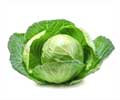A picture of hot chocolate fudge on a restaurant's menu card is more than enough to draw you towards the 'calorie-loaded' dessert, but a new study has suggested that well-understanding
Understanding of the emotions elicited while reading the list of tempting foods like hot chocolate fudge in restaurant menus can help people make healthy food choices, a new study has said.
In their studies authored by Blair Kidwell, David M. Hardesty, and Terry L. Childers (all University of Kentucky), the researchers assessed the "emotional intelligence" of consumers, including obese people.It was discovered that individuals who made the healthiest choices showed high correlations between their emotional intelligence and confidence in their emotional intelligence-what the authors call "emotional calibration."
"When perusing a restaurant menu, many consumers may not be aware of the subtle implicit feelings of arousal elicited by visually appealing presentations of unhealthy food choices. Faced with choices between healthy and unhealthy food options, individuals who are confident that they can appropriately interpret and employ their emotions, but who do not actually possess these emotional abilities, are likely to make low-quality decisions," wrote the authors.
In one study, the researchers measured emotional ability, confidence, and nutritional knowledge, for which they asked participants to plan meals from a menu with a wide range of options-some healthier than others.
The researchers discovered that people with emotional miscalibration tend to choose high-calorie foods, much more than people with low levels of nutritional knowledge.
In another study, obese individuals conducted an online survey and it was found that emotional miscalibration leaves obese people susceptible to impulsive eating triggered by vivid pictures of food.
Advertisement
As emotional calibration can reduce obese people's impulsive eating, encouraging emotional calibration may be useful in improving these consumers' food choices and overall health
Advertisement
The study was published in the Journal of Consumer Research.
Source-ANI
RAS/L










